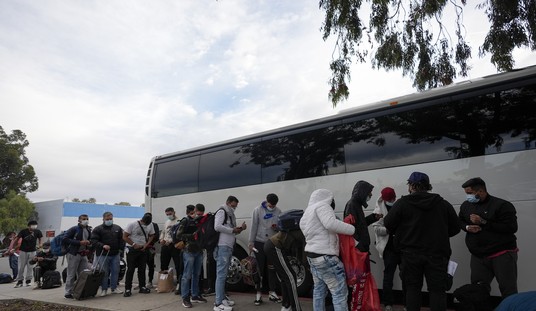Following President Donald Trump's "Operation Midnight Hammer" attack on Iranian nuclear enrichment sites on Saturday night, the Islamist nation's parliament has voted in favor of closing the strategic Strait of Hormuz, with the ultimate decision resting with the Supreme National Security Council, according to a report from Iran’s Press TV on Sunday.
The US military launched multiple “bunker buster” bombs at Iran’s Fordow facility, along with Natanz and Isfahan. Trump said the infamous Fordow facility, which is concealed nearly 300 feet beneath a mountain, has been “completely and totally obliterated.”
“We have completed our very successful attack on the three nuclear sites in Iran. All planes are now outside of Iranian airspace,” Trump posted on Truth Social shortly before 8 p.m. Saturday, marking the first US strike on Iranian soil.
Following strikes on the three key nuclear targets, international attention shifted to how Iran's "Supreme Leader" Khamenei might respond. Among the possible responses, most widely debated has been Iran’s threat to block the Strait — through which 20 percent of the world's daily oil shipments flow. When questioned about the Strait of Hormuz, Iran’s Foreign Minister Seyed Abbas Aragchi stated that “a variety of options are available with Iran.”
Here's more on the Strait of Hormuz, via Reuters:
CAN THEY DO IT?
The first question to ask is whether Iran is actually capable of seriously disrupting or blocking the Strait of Hormuz.The answer is probably yes. Iran could attempt to lay mines across the Strait, which is 55 km (34 miles) wide at its narrowest point. The country's army or the paramilitary Islamic Revolutionary Guard Corps (IRGC) could also try to strike or seize vessels in the Gulf, a method they have used on several occasions in recent years.Moreover, while Hormuz has never been fully blocked, it has been disrupted several times.During the 1980s Iran-Iraq war, the two sides engaged in the so-called "Tanker Wars" in the Gulf. Iraq targeted Iranian ships, and Iran attacked commercial ships, including Saudi and Kuwaiti oil tankers and even U.S. navy ships.
The good news is, according to Forbes, U.S. oil imports from the Middle East hit a record low in 2024, falling below double digits for the first time in more than three decades. The bad news is for countries that rely heavily on oil from the Middle East, most notably, China — which makes closure of the Strait a potential international issue.
ALSO CHECK OUT: 'Operation Midnight Hammer' Was a Flawless Success - SecDef Hegseth, CJCS Caine Speak From the Pentagon
While the coming days will likely be volatile (both with respect to the conflict itself, as well as behind-the-scenes negotiations), one thing is certain, in my sometimes not so humble opinion, which I'll put this way:
As expected, a multitude of social media keyboard jockeys are celebrating the U.S. attack on Iran as if it’s Christmas morning. While I strongly supported the attack, it was not the beginning of the end of the conflict; it was the end of the beginning.
Editor’s Note: Every single day, here at RedState, we will stand up and FIGHT, FIGHT, FIGHT against the radical left and deliver the conservative reporting our readers deserve.
Help us continue to tell the truth about the Trump administration and its major wins. Join RedState VIP and use promo code FIGHT to get 60% off your membership.














Join the conversation as a VIP Member